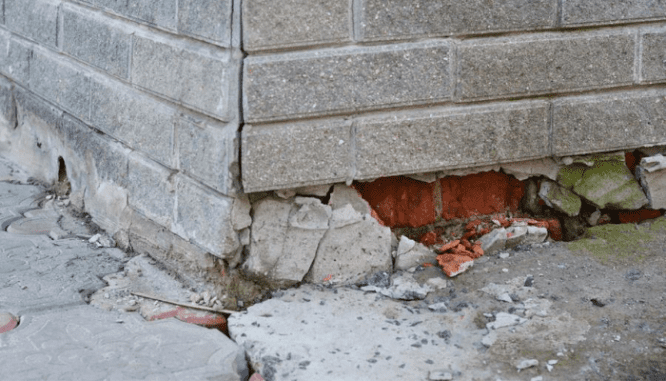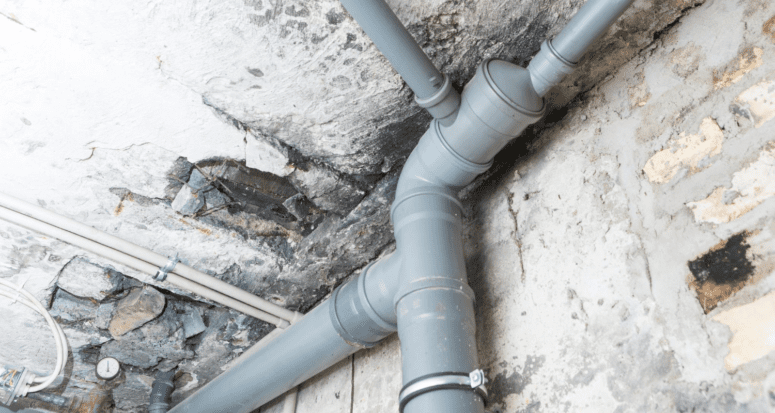Missing Something? Here’s What You Need to Know About Home Inspections
- Published on
- 5 min read
-
 Amy Pawlukiewicz Contributing AuthorClose
Amy Pawlukiewicz Contributing AuthorClose Amy Pawlukiewicz Contributing Author
Amy Pawlukiewicz Contributing AuthorAmy Pawlukiewicz is a writer and editor with over 15 years of experience in her field. She has a B.A. in English from Kenyon College and currently resides in Los Angeles.
Buying a home is one of the biggest moves you’ll make in your life. It’s a milestone. For some it signifies a crossover into adulthood; for others, it’s a way to build financial security for their future. Whatever the reason for your home purchase, one thing is certain: you want to make sure that your new home is safe, structurally secure, and not going to require a ton of work immediately after you move in.
This is why a good, thorough home inspection prior to closing is so important.
Inspections look for issues such as foundational problems, leaky roofs, electrical issues, and a number of other things that can turn your dream home into a nightmare if not addressed. “In Michigan, our general home inspection includes a very detailed walkthrough of the property with the buyer,” says Justin Glover, a top agent in Grand Rapids.
“The inspector that we use typically likes the buyer to be there so they can ask questions and explain.”
But there are also items that are not included in a home inspection, and depending on what area of the country you live in, getting different specialized inspections may be a good idea. Here’s what is (and is not) included in a general pre-purchase home inspection.

Foundation
Home inspectors look at the foundation of a house to first determine what type of foundation the home has — whether it’s raised, slab, cinderblock, includes a basement, and other variables and factors. The type of foundation affects a home’s hazard insurance rates.
The inspector then checks to see whether the foundation has structural problems, such as cracks, sagging, or bowing in the structure, window alignment, and other problems. Foundation problems can cost upward of $100,000, so it’s incredibly important to catch any issues before you purchase a home.
Grounds
Inspection of the grounds around the house covers things like the sidewalk and driveway of a property to make sure the concrete isn’t too cracked or damaged, fences, and septic drainage (if that applies).
However, if the home has a septic tank, a separate inspection may be needed, especially if any problems are found during the general inspection.
Basement
If the home has a basement, the inspector will check to make sure that it has a solid foundation, walls, and floor. They will also check for moisture or water intrusion and damage — a problem that can be very costly if left unchecked — and insulation.
Pests are another thing inspectors will look for when checking the basement, but a specific pest inspection may be desirable, depending on what area of the country the home is located in.
Roof
Roof issues can be incredibly detrimental to a home, especially if it’s located in an area with significant precipitation. Inspectors will check the age of the roof, condition, look for any damage, check the vents, and inspect the gutters to ensure proper drainage. If there is a chimney, they will also check the structural soundness of the chimney.
Attic
An attic inspection is similar to a basement inspection — inspectors look for leaks and moisture. If the roof is not structurally sound, there’s likely to be water damage in the attic.
They also check for proper insulation and pests, and they ensure that there is proper ventilation, such as a working attic fan.
HVAC
HVAC systems — also known as heating, ventilation, and air conditioning — need to be inspected to make sure that everything is functioning properly and safely.
The inspector will also look for signs of wear and tear on the systems, check for asbestos, and make sure the air filters are clean. If the home has a fireplace, they’ll also check the flues and make sure there are not any open seams in the chimney.

Plumbing
Although a separate plumbing inspection may be necessary, depending on the home, the general home inspection will check for wear and tear, function, and safety.
If the property has a well, the inspector will test the well water. They will also check the water heater to make sure it’s the right size, look for damage or rust, and ensure that it’s vented properly, producing hot water generally between 118 and 125 degrees Fahrenheit.
Electrical
Electrical problems in a home can be more than just a new homeowner’s headache, as faulty wiring can be a fire hazard. During the inspection, the inspector will look at visible wiring and make sure everything is up to code. Visible wiring must be in good condition, with no exposed splices, and cables must be secured and protected.
A certain number of three-pronged outlets is mandatory in each room, though this guideline varies from city to city. The inspector will also check that outlets, fans, circuit breakers, and light fixtures are all working properly.
Walls and ceilings
Foundational problems as small as cracks can cause big problems for a homeowner down the road. The home inspector will look for obvious cracks and leaks, in addition to making sure the walls and ceilings appear straight and level.
Adequate insulation (or lack thereof) is also noted in an inspection report. In general, if paint, wall coverings, and wood trim are not in good condition, this will be documented in the report, though these are cosmetic issues and not safety problems.
Floors
As with walls and ceilings, a home inspection will look for cracks and leaks in flooring, as well as proper installation.
An inspector can sometimes tell if there’s excess moisture under the house by inspecting the floor for “cupping,” which is seen when one side of a board has a higher moisture content than the other side. Any gaps in flooring where pests might get in are also noted on the report. A troubled floor can reveal larger problems with a home.
Windows and doors
A home inspection will look at whether windows and exterior doors open and latch properly, as well as whether there is any broken glass.
Decay, weather stripping, and windows that are painted shut will also be noted. Painted-shut windows can be a huge safety issue because windows are also supposed to serve as fire escapes, so those may have to be taken care of before a home changes hands.
It may seem like a no-brainer, but an inspector will also ensure that doors open and close properly, as poorly hung doors can be an entryway for pests as well as letting heat or cool air escape.
Appliances
Any built-in or free-standing appliances are checked for proper functioning during the home inspection. These can include microwave, refrigerator, washer, dryer, dishwasher, and other appliances that are being sold with the home.
Safety
A home inspection includes a number of safety concerns. A certain number of working fire alarms and carbon monoxide detectors are required for a home, so the inspection will make sure those are present. If the home has stairs, the home inspector will also look at the railings to make sure they are anchored and secure.
A home inspection will also include a ventilation check, making sure that vents are clean and not painted over. If there is an attic, an inspector will check the vents to ensure there is a clear path for air and that there are no plumbing, appliance, or exhaust vents that empty out into the attic.

What does a home inspection not include?
Now that you know what’s included, let’s look at the things that you should definitely not expect your home inspection to cover.
Cosmetic issues
Although something like peeling wallpaper or chipped crown molding might be noted in a home inspection, it doesn’t affect whether or not a home passes or fails.
Alarm systems
A home inspector will look at locks on doors and windows, but will not look at the alarm system during a general inspection.
Swimming pools
While a home inspector may document a glaring problem, such as a huge crack in a swimming pool, if you’re looking to buy a home with a pool, you may want to hire a designated swimming pool inspector.
Swimming pools come with a lot of complicated parts, including filters, pumps, and heaters, and general inspectors are not equipped to assess these.
Radon
Radon is a naturally occurring radioactive gas that can cause lung cancer and cannot be seen or smelled.
Testing specifically for radon is the only way to determine its presence, so you may want to hire a tester prior to purchasing a home, especially if you live in an area where there are elevated levels.
Termites
Termites and other pests can be a huge problem for a home’s foundation. If you have concerns about pests, or your general home inspector notes the presence of pests, hiring a designated pest inspector may be in your best interest.
Asbestos
Asbestos is a building product that causes cancer, and it was used frequently in homes built prior to 1999. If your home was built before the late ’90s, you may want to have a special inspector look at your insulation and pipes to make sure your home is asbestos-free.
Lead pipes or lead paint
Lead paint was used in homes built prior to 1978, and it is still present in millions of homes.

Code compliance
Although home inspectors look at the physical condition of the home and determine if it passes or fails standards, they will not look at municipal code compliance.
A separate municipal inspection would be needed if you suspect a code violation.
Mold
Mold is very common in buildings and homes, and large mold infestations can usually be seen or smelled. However, if mold is behind a wall, it can be hard to detect.
“If there’s mold damage in the walls that you can’t see, an inspector, even if he has 50 years of experience and has been in every situation — if he can’t see it, he can’t tell you about it,” says Jay Glover. If you suspect a problem, make sure to get it checked out.
Wells
If you are buying a property with a well, a specific well inspection is crucial because groundwater is subject to contamination.
“In Michigan, if a home is on a well or a septic system, the seller is required to pay for and provide an inspection of those,” explains Justin.
Detached structures (garages, sheds, and others)
While a garage may be included in a home inspection, sheds and other outbuildings generally are not included. Make sure to check with your home inspector to determine if any detached buildings will be excluded from the inspection.
Home inspections are wide-ranging, but there are areas that a general inspection can miss. Be sure to know what your inspector is and isn’t looking for so you don’t overlook any problems when buying your dream home!
Header Image Source: (Milosz_G / Shutterstock)
